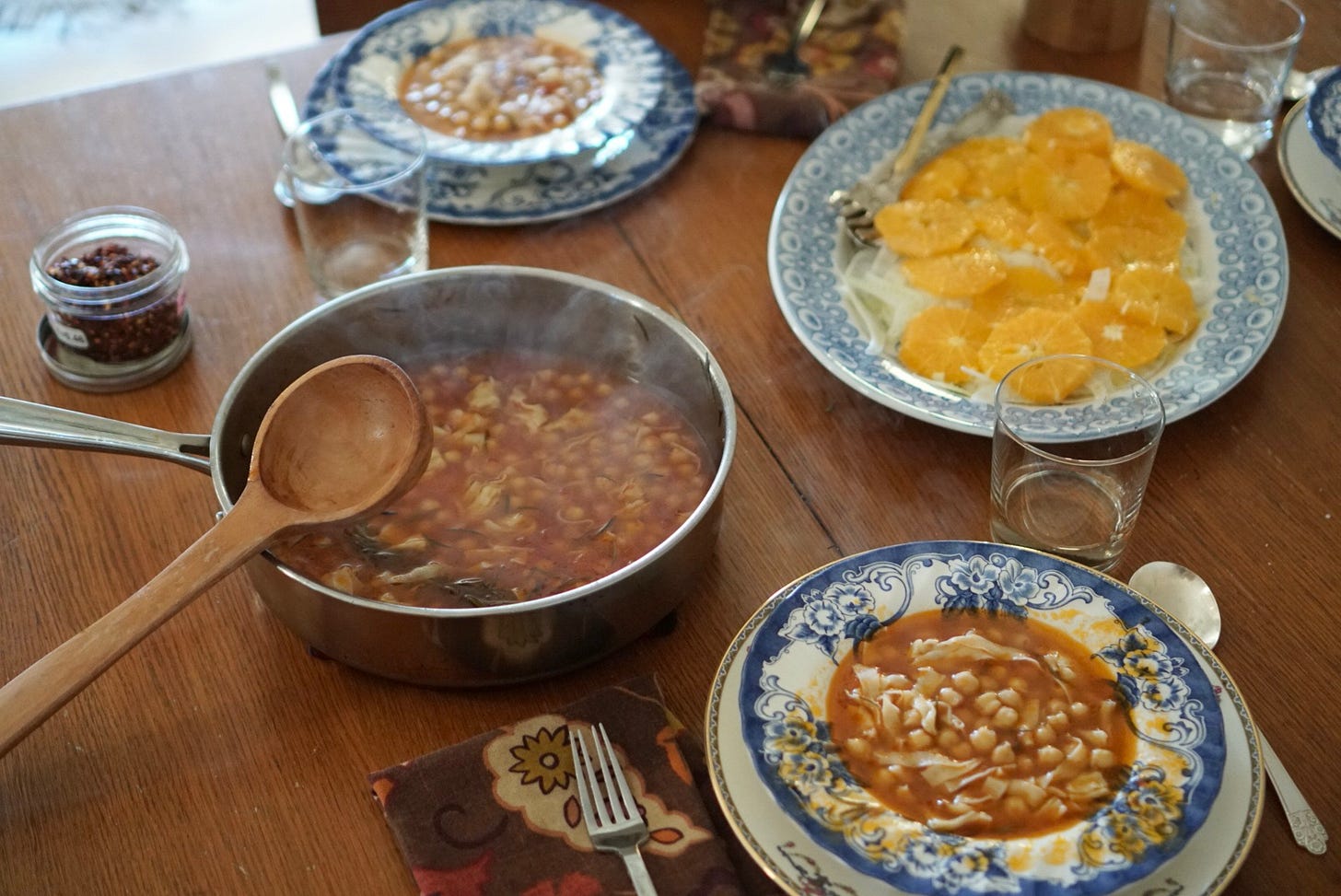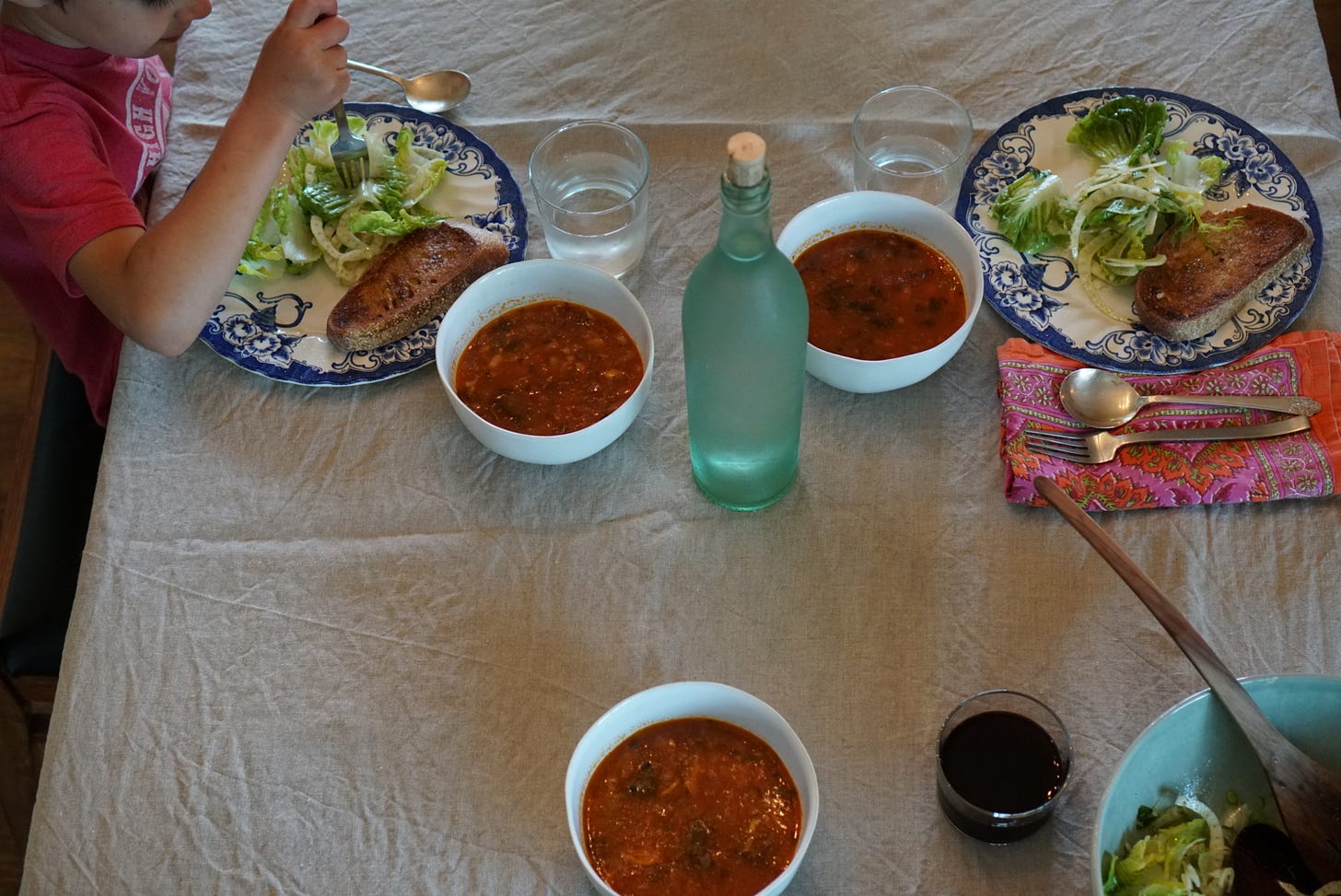Welcome to mama eats, a twice-weekly newsletter inspired by a simple + seasonal home life. This week’s post, on family dinner, is free to all readers. It also contains affiliate links, which means I get a small commission if you choose to use them. I try to provide as much free content as possible, however, this newsletter is a labor of love and I am a busy mother to three. If you have the means, and find value in what I share, please consider becoming a paid subscriber, which also gives you access to the growing archive of posts older than a month.
Family dinner is something I value highly, I find it to be one of the most profound and sacred rituals in our lives. As the modern pace of life continually speeds up, it has unfortunately been left by the wayside more and more, but I think it is especially important to uphold in this fast paced world. Dinner together provides an anchor point of the day, naturally creating space for connection, inviting us to rest and nourish both mind and body. It signals us relax and begin to wind down from the busy pace of the day, readying our body for evening. The act of eating is meant to be communal- sharing what we have made together, eating it together, a mini celebration each time of gratitude for the food, the people who grew it, of our health and our love for each other. It is a natural place for children to learn and practice table manners, the art of conversation, and respect for food. Even if you have had a busy day, especially if you have had a busy day, taking this time out is so important.
Here are a few of my suggestions and thoughts on making family dinner smooth, fun, and regular. I know there is a lot of information here, so if it’s overwhelming to think of beginning, strip it back to basics. Start by bringing intention into meal times, whether it be one or all of these suggestions. Focus on the overall purpose, which is to gather regularly and connect together over food. How can we include children in this daily task (or whoever is in the household)? How can we plan ahead to make family dinner happen more often? See it as an opportunity to connect deeper and make beautiful memories, elevating the experience of doing something we all must do anyway- eat dinner.

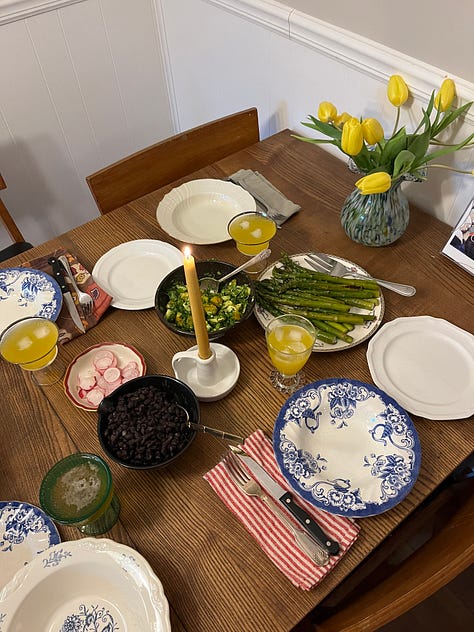

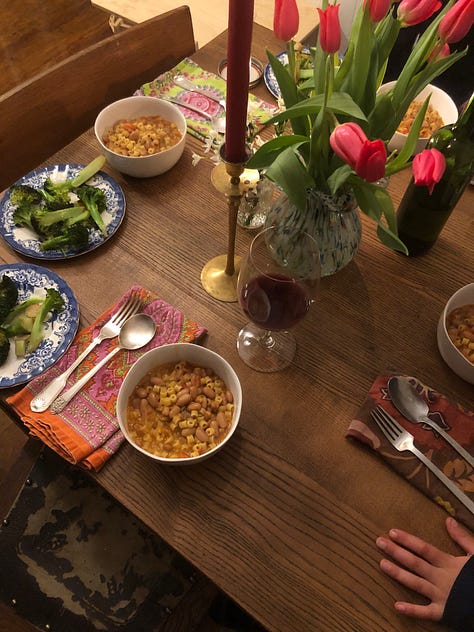
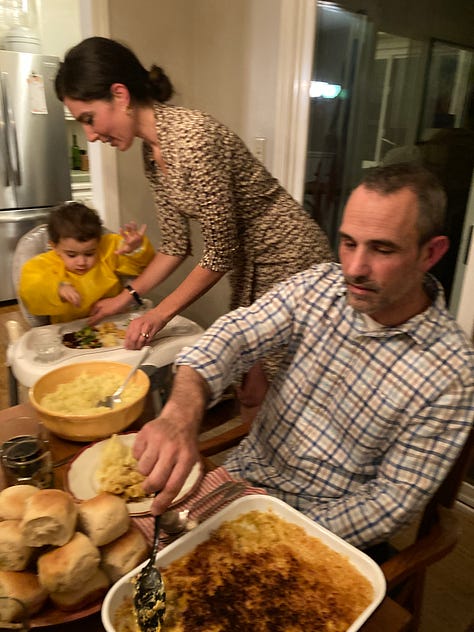

Make it a priority. Set firm boundaries.
Family dinner is sacred- everyone in our house knows that we do not schedule things during dinner, that they have to be home at dinner time, and that everyone contributes. It’s a commitment we make to each other to connect. It can also help to set a certain time for dinner so that everyone knows what to expect. I delayed sports for years because the practices and games are invariably during dinner time, and for us I felt it was more important to protect our evenings together. There is always time for extracurriculars later on when they get older as children naturally separate from their parents more and more. This also created plenty of time for unstructured play in the evenings, but that’s another story. With my older children now, we do have activities that are unavoidably during dinner sometimes, but I shift dinner time earlier or later to accommodate that.
We have a few rules at the table: no toys/books, no one starts eating until everyone’s been served, everyone sits until the last person is done eating, no food bargaining (for ex: “one more bite”, if you eat this, you will get this, if you clear your plate you get dessert…) and you need to ask to be excused from the table if you must get up. Of course, plus the usual no chewing with your mouth open, elbows off the table, napkin in your lap, etc. Everyone eats whatever’s on the table that night, and children decide how much they eat. If there’s a food someone hasn’t tried or doesn’t want to eat, they must try one bite before deciding whether to eat it or not. Set the rules/boundaries that align with your own family’s values and enforce them kindly but firmly. Also, keep in mind that just as in life, dinner will not always be beautiful and positive- there will be grumpy moods, tantrums, tears, food on the floor, someone refusing to eat something- it’s ok, it will pass.
Minimize disruptions.
Make sure everything you need is on the table, to avoid having to keep getting up to get missing things- I always put the salt cellar on the table for this reason, a pitcher of water is also a good idea. Silence phones and put them out of sight. When children are little, it helps to cue them to use the bathroom (and wash hands!) right before the meal, so that getting up during the meal is avoided.




